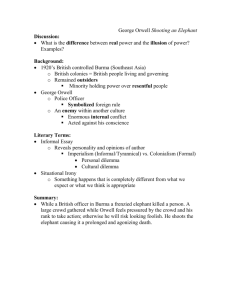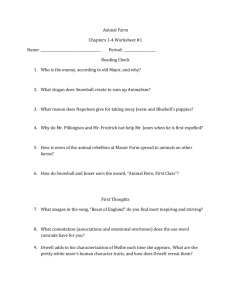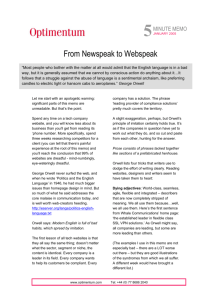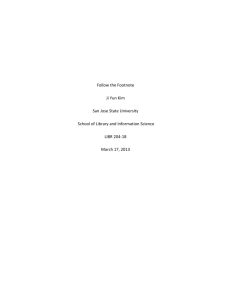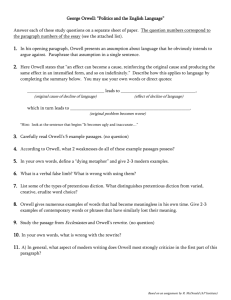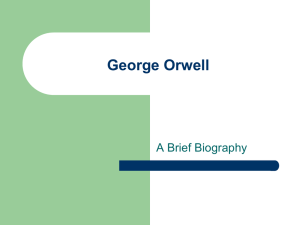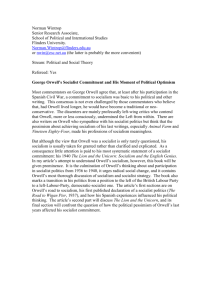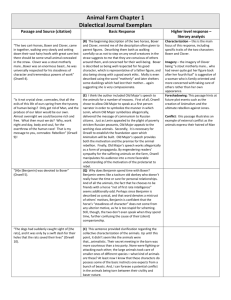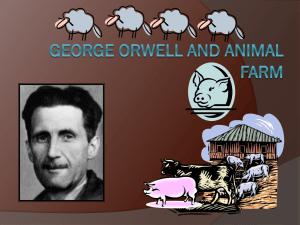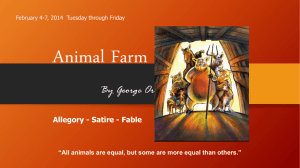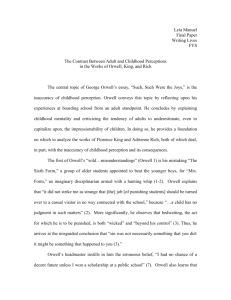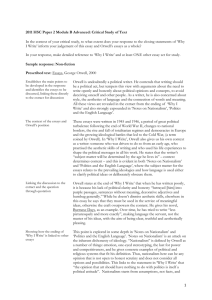Professional Writing: Process and Practice EN 1700 – Fall/Winter
advertisement
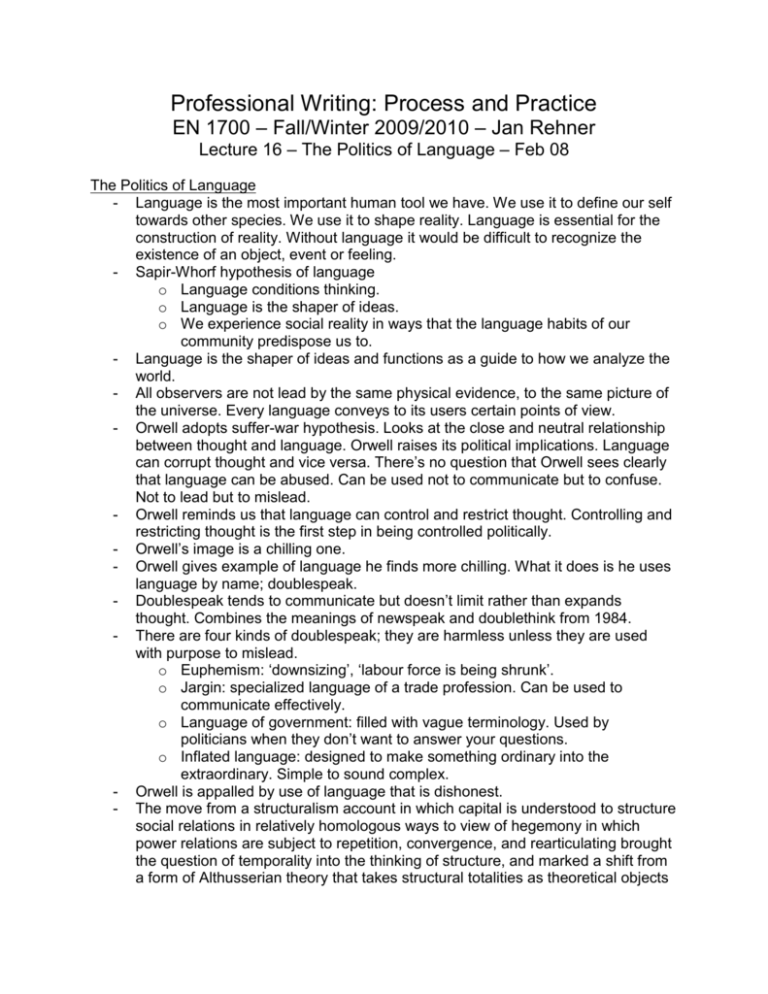
Professional Writing: Process and Practice EN 1700 – Fall/Winter 2009/2010 – Jan Rehner Lecture 16 – The Politics of Language – Feb 08 The Politics of Language - Language is the most important human tool we have. We use it to define our self towards other species. We use it to shape reality. Language is essential for the construction of reality. Without language it would be difficult to recognize the existence of an object, event or feeling. - Sapir-Whorf hypothesis of language o Language conditions thinking. o Language is the shaper of ideas. o We experience social reality in ways that the language habits of our community predispose us to. - Language is the shaper of ideas and functions as a guide to how we analyze the world. - All observers are not lead by the same physical evidence, to the same picture of the universe. Every language conveys to its users certain points of view. - Orwell adopts suffer-war hypothesis. Looks at the close and neutral relationship between thought and language. Orwell raises its political implications. Language can corrupt thought and vice versa. There’s no question that Orwell sees clearly that language can be abused. Can be used not to communicate but to confuse. Not to lead but to mislead. - Orwell reminds us that language can control and restrict thought. Controlling and restricting thought is the first step in being controlled politically. - Orwell’s image is a chilling one. - Orwell gives example of language he finds more chilling. What it does is he uses language by name; doublespeak. - Doublespeak tends to communicate but doesn’t limit rather than expands thought. Combines the meanings of newspeak and doublethink from 1984. - There are four kinds of doublespeak; they are harmless unless they are used with purpose to mislead. o Euphemism: ‘downsizing’, ‘labour force is being shrunk’. o Jargin: specialized language of a trade profession. Can be used to communicate effectively. o Language of government: filled with vague terminology. Used by politicians when they don’t want to answer your questions. o Inflated language: designed to make something ordinary into the extraordinary. Simple to sound complex. - Orwell is appalled by use of language that is dishonest. - The move from a structuralism account in which capital is understood to structure social relations in relatively homologous ways to view of hegemony in which power relations are subject to repetition, convergence, and rearticulating brought the question of temporality into the thinking of structure, and marked a shift from a form of Althusserian theory that takes structural totalities as theoretical objects - - - to one in which the insights into the contingent possibility of structure inaugurate a renewed conception of hegemony as bound up with the contingent sites and strategies of the rearticulating of power. Orwell is appalled with what he calls laziness in expression. Lazy writing are clichés and idioms. For that moment that you use them you’re not thinking at all. Clichés and idioms: avoid them like the plague: o Tried and true. o Bone-tired. o Bent out of shape o Best food forward. o Calm before the storm. o Hell-bent for leather. o Dumb as a post. o Cat got your tongue. o Penny for your thoughts. o Raining cats and dogs. o Dead as a doornail. Orwell lists 6 rules. This essay is not a style guide; it is about using or abusing language in the presence of power. There are deeper and more serious descriptions in Orwell’s description of writing. One criticism that would be made about Orwell’s writing. o He argues in his essay against the use of abstractions. Some of his examples are words that he hears repeatedly in public discourse. Freedom. Equality. Democracy. Patriotism. These words are goody-goody words. They are very emotive. We have strong emotions about these words and the problem is that their meanings have shifted over time they have become fuzzy. Orwell overstates the case. Concrete language is used to name person, places, things, objects, events. Concrete is specific; abstract is vague. Concrete language is equated with plain simple English. Abstractions: relational words referring to concepts or emotions and embedded in social relations. Concrete Words: rooted in material reality. Refer to people, places, objects and sensory details. Every writer needs to be clear, but clarity is not simplicity. SingleSpeak - World of thought and simple answers to complex questions. - The world of political slogans and add campaigns. - Impact of singlespeak is pretty severing. - You use simple language to talk about complex issues you make them simple. - Reducing the audience’s ability to analyze in depth to understand something. - Pre- and post- university testing of student writers; they rest students who are entering and graduating university and what they want to do is be able to - - - measure or quantify your growth as a writer. Only measuring tool they have is grammar. They use what is called an error count. Tests prove what everybody knew to be untrue. The students who were graduating were worse writers than the ones that were entering. Grammar is a political issue. Always been linked with social power. Grammar knowledge is used to draw lines of social distinctions and class. Singlespeak: political slogans o Better red than dead. o Make love not war. o Stay the course. o Don’t take our money, don’t take our guns. o Country first. Sensationspeak: the language of tabloids and headlines o When good people are swept up with the bad. o Smart girls save themselves for Chili. o Raptors mired in mask-gate. Language and thinking are fluent with each other and that no matter how concrete; language without critical thinking is backwards. Critical thinking is only available when you analyze thinking and writing. Every writer loves language.
